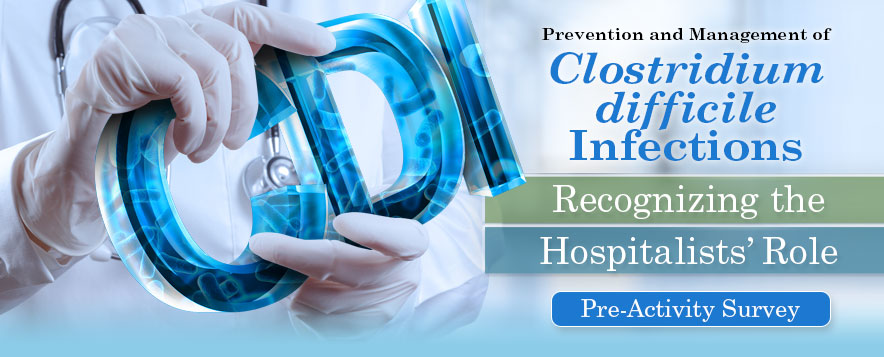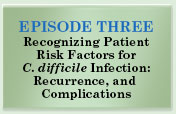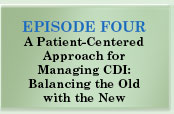| Educational Overview Costridium difficile infection (CDI) places a significant clinical and economic burden on the healthcare system. The rising incidence of CDI is attributed to the emergence of a previously rare and hypervirulent strain of C. difficile. Increased toxin production and high-level antimicrobial resistance have allowed this strain to thrive in healthcare settings. Furthermore, populations previously thought to be at low risk of infection are now being identified as having severe CDI, including those without any exposure to healthcare facilities. Fortunately, new diagnostic techniques have been developed to assist clinicians in the accurate and rapid detection of these infections. Additionally, new treatment options are available to clinicians for the management of initial and recurrent episodes of CDI. The prevention and management of CDI involves multiple disciplines responsible for the care of at-risk patients. As a key patient advocate in the hospital, the hospitalist can play a major role in ensuring that appropriate measures are in place for their patients at high risk for CDI. Hospitalists can also ensure that timely and appropriate diagnostic tests are performed at the early signs of CDI and appropriate treatment selection is based on patient factors. Target Audience Optimal management of CDI requires contributions from all HCPs, including hospitalists, involved in the management of patients at risk for these infections. Therefore, this program targets hospitalists who play a role in managing and preventing infections at healthcare institutions. Learning Objectives Upon completing this activity, participants will be able to:
|
Educational Format
These Online Presentations are based on the CME Satellite Symposium held in conjunction with Hospital Medicine 2015, SHM’s Annual Meeting. Please Note: If you have received credit for attending the live symposium by the same name, you are not eligible to apply for credit for this online version.
Faculty
|
||||||||||||||||||||
Center for Independent Healthcare Education designates this Enduring material for a maximum of 2.0 AMA PRA Category 1 Credit(s)™. Physicians should claim only the credit commensurate with the extent of their participation in the activity. For questions regarding accreditation, please contact info@jointsponsor.com
Method of Participation and Instruction for Credit
DISCLOSURE OF CONFLICTS OF INTEREST In accordance with policies set forth by the Accreditation Council for Continuing Medical Education (ACCME), Center for Independent Healthcare Education requires all faculty members and spouses/significant others with an opportunity to affect the content of a continuing education activity to disclose any relevant financial relationships during the past 12 months with commercial interests. A commercial interest is any entity producing, marketing, reselling or distributing health care goods or services consumed by or used on patients. Relationships with commercial interests and conflicts of interest resulting from those relationships must be revealed to the audience and resolved prior to the activityRelevant relationships include roles such as speaker, author, consultant, independent contractor (including research), employee, investor, advisory committee member, board member, review panelist, and investigator. If a potential speaker or author indicates a possible conflict of interest, the conflict will be resolved by choosing another speaker or author for that topical area, or the slides, handouts, and/or monograph will be reviewed and approved by a qualified commercially-disinterested peer. |
DISCLOSURE OF FINANCIAL INTEREST SUMMARY Dr. Kelly intends to discuss the off-label use of following: metronidazole, rifaxamin Fee Hardware/Software Requirements Software/Hardware Connection Speed System Check Copyright Statement Privacy Policy Joint Providership Commercial Support Supported by an educational grant from Cubist Pharmaceuticals, a wholly owned subsidiary of Merck & Co., Inc. |
START ACTIVITY |








